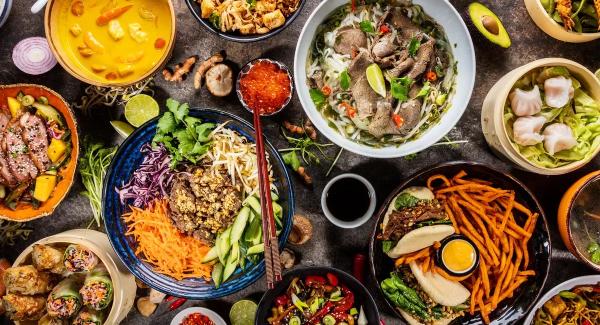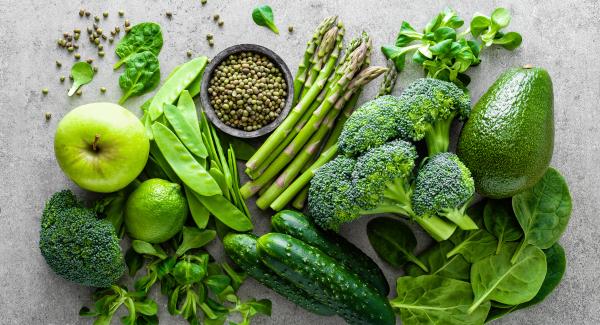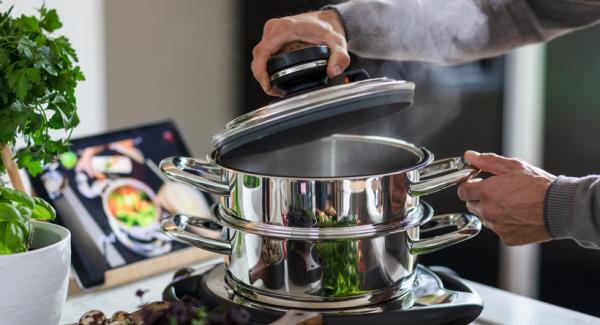Register now & enjoy many advantages
- Rating
- Cookbook
- Comment
- Shopping list
Meal Prepping – pre-cooking made easy!
- 15. April 2020 -
Basically, pre-cooking your meals is nothing new! Nevertheless, “meal prepping” (= preparing meals several days ahead) has been a major food trend for some time and is gaining more and more fans.
Especially now that we must work a lot from home, restaurants and snack bars are closed and the children are at home with us all day, cooking several times a day can come with several challenges. Are you starting to lack on inspiration on what to cook? Do you want to avoid frequent grocery shopping trips but don’t know how to plan your meals properly? Do you want to spend your lunch breaks and evenings relaxing instead of cooking and washing dishes?
We will provide you with all you need to know about meal prepping and show you how to become a meal prepping expert in no time at all!

Why pre-cooking?
Meal prepping has grown especially due to the fitness hype that started several years ago by social media such as Instagram. Fitness professionals and hobby athletes began to pre-cook their dishes throughout the week and portion them in such a way that their nutritional and calorie needs are optimally met every day. While meal prepping is particularly well suited to supplying yourself with nutrients and vitamins in a targeted manner, there are numerous other advantages to pre-cooking your food – even beyond sport.
You save time
At first, you may have to force yourself to take a few hours a week at a time to cook your dishes for the week. But on a long term you save time, because you do it all at once: from buying, cutting and preparing all the food, washing all the dishes, and cleaning the kitchen after cooking.
You save money
Especially when you want to prepare your meals for your daily lunch breaks, you save a lot of money! Going to the snack bar around the corner or calling the delivery service is no longer necessary and your lunch is only a fraction of the price!
You live healthier
If you cook yourself, you know what's inside! Fresh, crunchy vegetables and high-quality protein sources give you and your body exactly what you need! Especially if you have food intolerances you have better cards with what you cook yourself: you can control whether lactose, gluten, preservatives or artificial flavors are in your meals or not.
All in all you see: Whether as a busy professional, as a parent with little time besides the tasks of a turbulent everyday family life or simply as somebody who wants to eat more consciously, economically and healthy – pre-cooking has many advantages in store!

How it works
Now we will explain how to become a meal prepper step by step and what you must pay attention to when pre-cooking.
Your dishes – cleverly stowed away
Before you start pre-cooking, make sure you have enough space for your supplies. Rectangular containers are best for meal prepping because they can be stacked in the refrigerator. The longer you keep the cans or jars closed, the longer they will last. Therefore, if possible, use containers that are transparent so that you can quickly see what's inside and do not have to open each container individually.
If you don’t want to use plastic containers, you can use glass containers as an alternative. Mason jars, for example, are perfect for layered salads. Make sure the jars can be closed airtight, for example with rubberized lids. If you want to take dressings and sauces with you, you should fill them separately in small containers so that they do not soak through the other dishes.
Variety is key
If you have enough storage containers and space in the fridge, it is time to plan the dishes. In general, you have plenty of options. It is important that the food can be kept for several days so that you can still enjoy it towards the middle or end of the week. Whether you like to use vegetables, legumes, pasta, meat, nuts, sauces, dressings or dips - you can let your creativity run free. For a little inspiration, we have put together our favorites for you - including delicious recipe examples from our community!


As basics, we recommend foods that are filling and can be combined in a variety of ways, such as rice, pasta, potatoes or quinoa.
You are well served with the necessary portion of protein with these foods: beans, lentils, chickpeas, hummus, poultry, feta, mozzarella, quark or eggs.
You can also enrich your meals with healthy fats. In moderation, they are edible without a guilty conscience and provide you with important nutrients. Here are some examples: nuts (whole, ground or in the form of nut butter), high-quality oils such as olive oil or avocado.
Spice up your meals with fresh, juicy and crunchy vegetables! The following vegetables not only taste good, they are also rich in various vitamins: carrots, tomatoes, lettuce, cauliflower, broccoli and many others.
For the finishing touch, we recommend these components that give your meals the necessary kick: mustard, soy sauce, vinegar, homemade dressings, yogurt, onions, garlic, lemon or lime, fresh chili and various spices.
More helpful hacks
- When you have decided on what to cook, write down what and how much of everything you need. There are many portion calculators on the Internet that help you find out how much of what you need to buy in order to prepare the number of portions you want.
- If you want to use a lot of fresh food for pre-cooking, it is best to prepare the food on the same day (or the day after) you bought it. An alternative is to freeze the dishes in portions and defrost them when you need them. This works wonderfully with soups for example.
- Block several hours in which you take the time to prepare all dishes. To save time, think about which order is best for the preparation. Food and dishes with a long soaking or cooking time, such as beans or lentils, should be prepared right at the beginning so that you can devote yourself to other preparation steps while they are being cooked (tip: you can use your fast-cooking lid Secuquick to shorten the cooking time of your dishes by up to 50 %).
- Cook different dishes with similar ingredients. If you want to use rice for example, you can prepare different rice dishes or simply refine it with different additives.
Take the current situation as an opportunity to try something new and deliberately deal with conscious cooking and eating. Cleverly combined and well prepared, meal prepping can be a great support for the coming weeks to help you find your way around your everyday life even better. And now we hope you enjoy preparing it!
Do you have any questions or comments? Click here for the forum!



